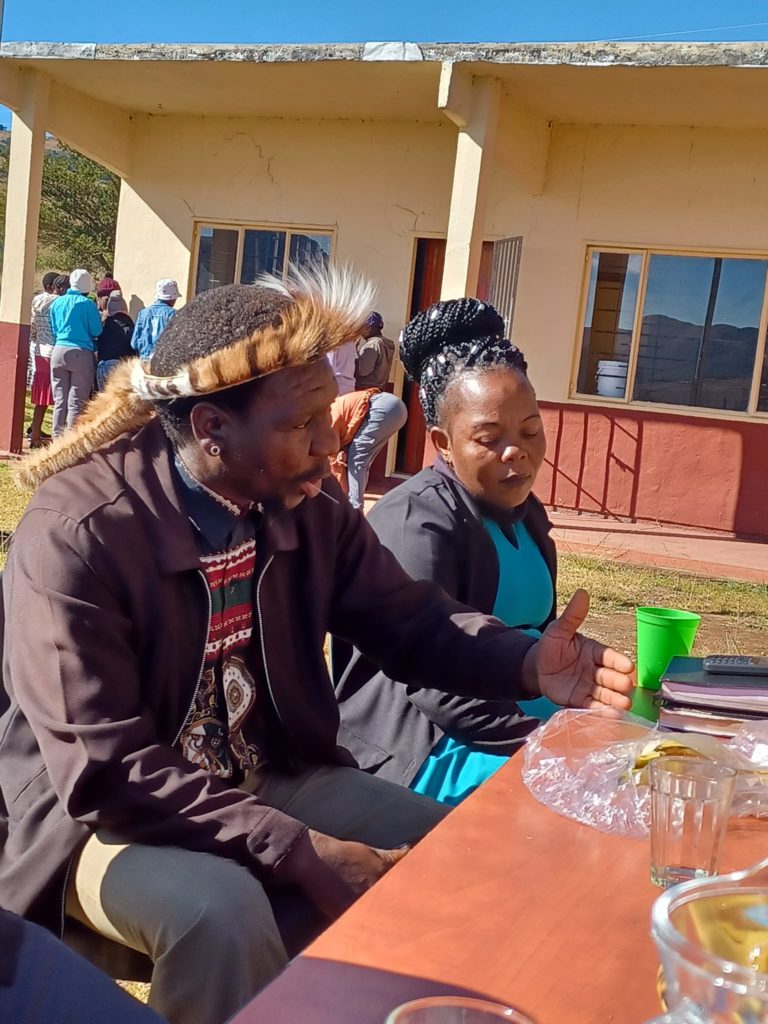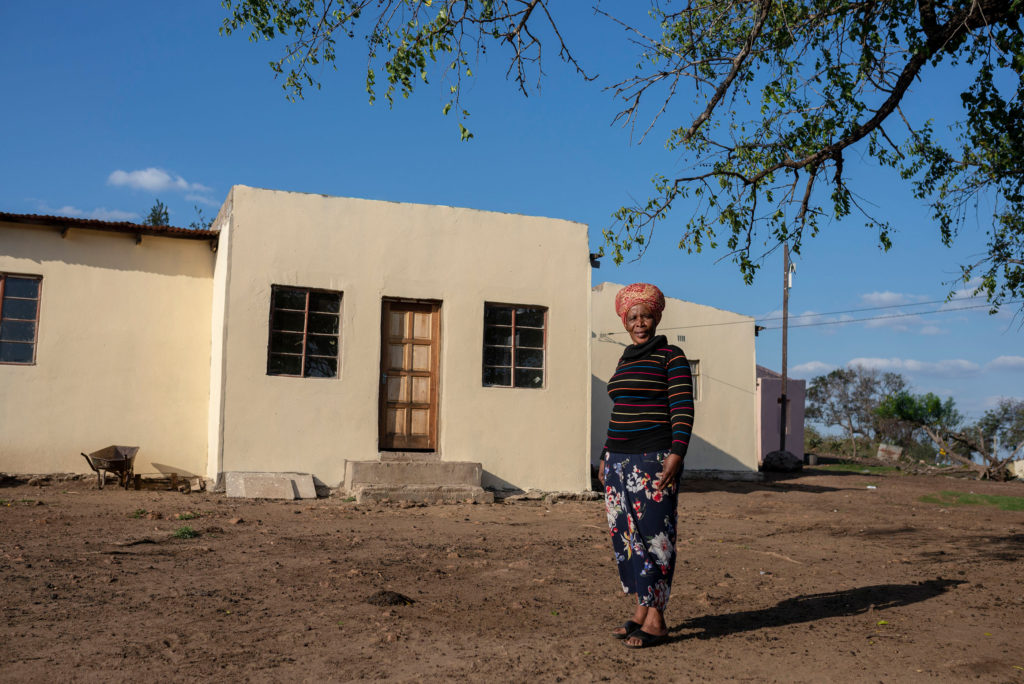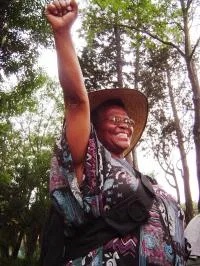
Sibongile Mtungwa
Journeys have a way of evoking unexpected things – emotions, memories, reflections, new and old doubts, questions and answers about possible pathways to the future. I’ve been meaning to write about this Mzantsi short left experience visiting one of KZN’s fiercest social justice leaders and community organisers, Sibongile Mtungwa. I’ve known about her work for a while, but for me, the “visit” did much to elucidate her intersectional feminist organising praxis. Her command of complex relationships and nuanced approach to disrupting power hierarchies in a largely traditional socio-cultural set up. Her nuanced feministing that comes so effortlessly that it may be easy to miss. Her everyday facilitation of a critical, if curious, intergenerational dialogue where culture, tradition and so called “modernity” collide into each other exploding into new spheres of imagination.
Her depth and breadth of knowledge on diverse issues and her ability to zone in on what it all means for women is beyond commendable.
As fascinating is her treatment of the politics of identity. In a world where one of neoliberalism’s colonising effects is its injection of a mortal fear in our imagination, that we are disappearing together with everything we once knew or were, identity often becomes the life boat we cling to, sometimes pathologically so, in navigating our way to survival. When it is not the life boat it becomes this perverted instrument for a neo-colonialism of a special type. Her “intersectional” feminist approach challenges and stretches mine, and that of many other feminists, with their tendency to be overly matter of fact and fail the task of recognising the bridges there are for traversing “cites of struggle”. That identities, including cultural identities, can be claimed and repurposed into resources from which to advance liberation, expanding our “decolonial” possibilities as opposed to new identity prisons that patriarchy and his friends prefer to fashion them as. The idea that the art of liberatory feministing, or what the “new” NGOism calls “Transformative Feminist Leadership”, is the ability to creatively and effectively hold contestation as dialogue between intersecting oppressions and possibilities for liberation. Imagine the possibilities for the restoration of “health” and wellness that such an approach can yield!
Leadership like this is only possible to be produced from communities that are rich in spirit, agency, self-knowledge and vision, even when everything exists around them to strangle that vision. And there are as many stranglers of vision in Harry Gwala District Municipality as leaders and vision are plentiful.
Sibongile has chosen for herself a spirituality that seems to ground her faith in, and commitment to the art of possibility. The work she does is a daily grind that can only be made light by that kind of grounded commitment. Those who have organised anywhere, and especially in rural South Africa know how isolated rural activists often are, and feel. Donors have many excuses for marginalising these organisation’s and the rural organising space. Oh it’s too far. The organisations are too small and local. The context is too complex. It’s not easy to reach. We’ve all heard the excuses. Donors don’t like journeying off the beaten path, it’s easier to fund mainstream social change with its mainstream actors and their glossy reports and simplistic narratives and roll-off the tongue (if often vapid) strategies. So despite years of experience, a proven track record and commanding vision, Sibongile’s organisation continues to shrink in capacity because if there are going to be casualties in this war of attrition in social justice it’s going to be those organisations at the cliff’s edge of the urban/rural divide. But she pushes on. Art of possibility. And from the plentiful fruits of her labour the future is birthing itself in the cracks that time has made on the shell of the old.
The girls whose leadership journey her work fosters are beautiful and hopeful and have found the song of their hearts. The old ones are puzzled and curious, if somewhat desperate to believe the past has not taken everything with it. They walk slowly towards the hills where the sounds of water beckon. The future has made its call to the past!
Sibongile is not a lone warrior because she knows that futures that are liveable for all are made possible through community effort. She is a representation of so many multi-generational feministars the world over who are as they say “flipping the script”!
Gazing into those hills, I couldn’t help but be reminded of mama Sizani Ngubane and how in some way her spirit lives in Sibongile and so many others working hard to ensure rural South Africa is not relegated to the country’s own forgotten wild west.
May those she walks with in this organising journey be strengthened by the knowledge their work is known beyond the hills, and it’s kind of philosophies has a name.
Among her many affiliations, Sibongile is a Tekano Fellow and member of the Atlantic fellows global community of leaders dedicated to the advancement of “fairer, healthier, more inclusive societies”.
Hers is an inspiring example of the transformative pedagogy of struggle the pursuit of equity and justice, from a health or any other angle, demands.
Sibongile has told snippets of her story whose contours as vast and deep as her home province. Check this snippet: https://tekano.org.za/tekano-fello/sibongile-mtungwa/
Niqine maqabane ase WLTP!
And as for especially so called “feminist” donors, say thank you, you’re welcome! Fundani nazi and fund the work of women like her. Find Sibongile and fund their visionary feminist work here!
(By Siphokazi Mthathi)
(Photo credit: Siphokazi Mthathi / Facebook)

